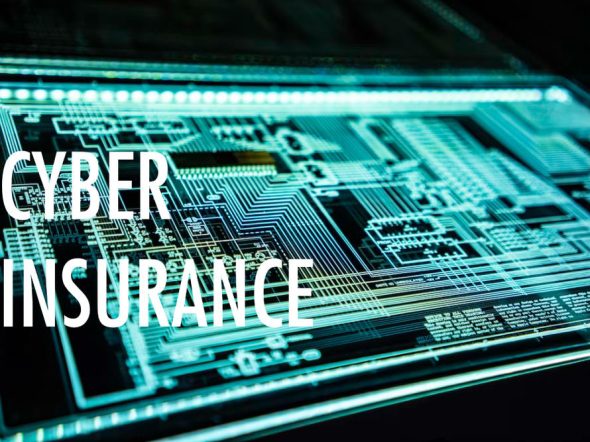What do we do when things go haywire and the chips are down? For starters, we tend to look to insurance to bail us out of the financial pickle we find ourselves in. It's a tried-and-true method that's been around for ages.
Things have gotten more complex these days. Every day we hear about cybersecurity threats, including insider threats, DDoS attacks, and email fraud. That's where cyber insurance comes in – it's become a non-negotiable.
It's not the same as traditional insurance. There are different policies and clauses to keep track of, and trying to sort it all out can be a real headache.
So what do you need to know? What are the key points that you can't afford to miss? And where might you still be at risk, even if you do everything right?
Safeguarding Your Digital Assets with Cyber Insurance
The FBI is sounding the alarm about a looming wave of cybercrime targeting small enterprises. Individuals are not safe, either. Victims of personal data breach incidents suffered a loss of $700 million in 2022.
Cyber insurance protects individuals and businesses against the financial toll of cybercrimes. There are different cyber insurance policies, each with specific coverage options.
First-Party Cyber Insurance
First-party cyber insurance covers your losses when you fall victim to a cyber-attack. It can be useful when facing the costs of investigating and responding to the attack. This insurance can help you in:
- Recovering lost data
- Repairing damaged systems
- Dealing with the fallout from system downtime
First-party insurance covers more than the basics. It might cover cyber extortion, ransomware payments, and loss of intellectual property. It's all about customizing your coverage to fit your unique situation.
Third-Party Cyber Insurance
Third-party insurance provides coverage in case you ever face a cyber attack. It's a safety net against claims made against you by third parties, like customers or partners.
Let's say, for instance, that you experience a customer data breach. Your customers will not be happy about that, and some may even sue you for damages. But with third-party cyber insurance, you can breathe a little easier.
Your policy will cover your legal expenses and any damages you must pay.
And it's not limited to customer data breaches. Third-party cyber insurance can cover liabilities, from privacy breaches to loss of confidential data and even defamation or copyright infringement.
Network Security Insurance
Network security insurance covers damages from network security failures. This insurance covers a range of losses and expenses related to network security:
- Investigating and responding to a security breach
- Repairing damaged systems and networks
- Recovering lost data
- Business interruption losses due to system downtime
- Legal fees and damages resulting from lawsuits
- Regulatory fines
- Other expenses related to data privacy and security compliance
Media Liability Insurance
Media liability insurance is like a cape for individuals and businesses in the media and entertainment industry. It shields you from potential legal claims that could come your way due to your work.
These claims can be serious. We're talking about defamation, invasion of privacy, copyright infringement, and more.
You can customize your policy to fit your specific needs. Publishers, broadcasters, and filmmakers must never go without media liability insurance. And today, with online content floating around, you'll want to ensure you're covered.
Most cyber insurance policies will cover the costs associated with a cyber incident. But some policies may go above and beyond. They might cover extortion payments, notification costs, and public relations expenses.
But, and this is a big but, don't assume that your policy will cover everything under the sun. Policies may exclude losses like theft of trade secrets or acts of terrorism.
And here's another kicker: some policies may need specific cybersecurity practices and procedures. Failure to comply could result in a flat-out denial of coverage.
Proactive Measures to Fortify Your Defenses Against Cyber Security Threats
Cyber insurance is a safety net in a cyber attack. But it's always better to prevent those attacks from happening altogether. Here are some critical measures to protect yourself from cyber threats:
- Schedule regular security assessments. They will help you find any vulnerabilities in your system so that you can improve your security.
- Use strong passwords. Weak passwords mean you are like an open book to cybercriminals. You must use strong, complex passwords with a mix of letters, numbers, and symbols. Use a password manager to generate complex and one-of-a-kind passwords for your online accounts.
- Put in place multi-factor authentication. It adds protection by requiring a second form of authentication for account access. Think text messages or biometric scans - it's like a virtual bouncer for your accounts.
- Keep your software up-to-date. Outdated software is an open invitation to cybercriminals to exploit any vulnerabilities they find.
- Create a data backup plan. Keeping your data in encrypted cloud storage will add protection against data loss. It's like having a trusty safety deposit box for your digital files.
- Use antivirus and anti-malware software. They can prevent malware and cyber attacks from wreaking havoc on your system.
Preventing a problem is always the way to go, no matter how much cyber insurance you have. By implementing these measures, you can reduce the risk of a cyber attack and minimize the impact of a successful attack.
